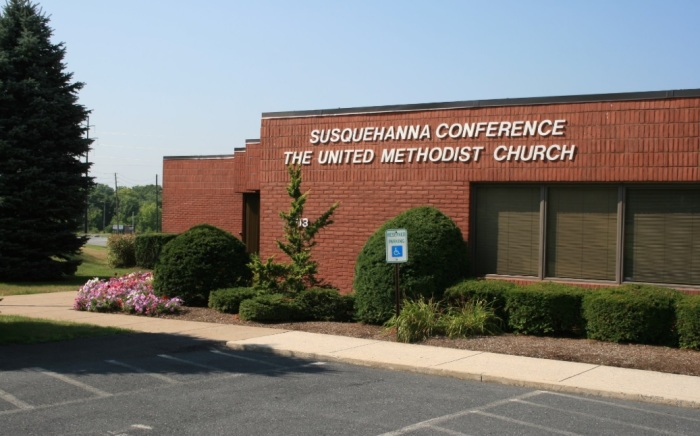United Methodist conference sues Pennsylvania church for trying to leave denomination

A regional body of The United Methodist Church, the second largest Protestant denomination in the United States, is suing a Pennsylvania congregation on the grounds that church leaders violated UMC bylaws by not properly disaffiliating from the denomination.
The UMC Susquehanna Conference filed a lawsuit against people tied to Cortez Community Church of Jefferson Township, formerly known as Cortez United Methodist Church.
The lawsuit was filed in Lackawanna County Court and names church members Daniel Hulse Jr., Cathy Strickbein, Alicia Clarke Witkowski, Ken Witkowski and Abbigale Clarke as defendants, reports The Times-Tribune of Scranton.
The Christian Post contacted the Susquehanna Conference. However, a spokesperson declined to provide comment, saying the matter is "active litigation."
According to the lawsuit, the defendants, who held various leadership roles at Cortez UMC, decided to unilaterally leave the denomination in February, taking control of the church property and seizing bank accounts.
According to the legal filing, the defendants changed church signs to reflect the new name and religious identity on Feb. 9. On Feb. 19, the defendants allegedly took action to seize the church's bank accounts.
A hearing is scheduled for May 28 before Lackawanna County Judge Julia Munley, the newspaper noted. The departed congregation reportedly still occupies the church building located on Cortez Road and is holding services.
Attached to the conference's legal filing was a Feb. 28 letter church leaders sent to congregants explaining that other discussions were held about disaffiliation before the disaffiliation decision was made final, according to The Times-Tribune.
"You remain a United Methodist Church until the conference says you are not a United Methodist Church," conference chancellor Joseph Layman told the local news outlet. "The fact they changed the name and claim to be the Cortez Community Church has no impact. We still consider it to be the Cortez United Methodist Church."
In March, the conference held a special session on May 17 at the Community Arts Center in Williamsport to vote on whether "to affirm or not affirm the current qualified requests for disaffiliation."
"This special session will allow those who have chosen to disaffiliate to vote on their disaffiliation during this special session. Upon the adjournment of the special session, all decisions of the special session will be final and cannot be reversed," a March announcement reads.
"Therefore, in concert with the Disaffiliation Covenant, lay members of disaffiliating congregations to the Annual Conference have agreed not to attend the regular session of Annual Conference which will convene May 18. Clergy who are in the process of withdrawing from the denomination are also encouraged not to attend the regular session."
In 2022, over 1,800 congregations disaffiliated from the UMC amid the ongoing debate over the denomination's rules barring the blessing of same-sex unions and the ordination of noncelibate homosexuals.
Theological conservatives have taken issue with several progressive leaders within the mainline Protestant denomination refusing to enforce or follow the official rules.
Many congregations that have disaffiliated from the UMC have joined the Global Methodist Church, a theologically conservative denomination launched last May after the denomination delayed its General Conference initially set for May 2020 for a third time amid the COVID-19 pandemic to 2024. Delegates were expected to negotiate a denominational split.
The 2019 UMC General Conference established a disaffiliation process requiring two-thirds approval from eligible church members in each congregation and a majority vote from annual conference members.
While many congregations have been allowed by their regional conferences to disaffiliate, others have faced financial roadblocks, and some have had disaffiliation votes denied.
Hundreds of congregations have filed lawsuits against their regional bodies amid opposition to their disaffiliation requests.
Last month, over 180 churches in Georgia filed a lawsuit against the UMC North Georgia Conference in Superior Court in Cobb County after the conference moved in December to prohibit more congregations from disaffiliating.
Also in March, 38 churches in Maryland sued the UMC Baltimore-Washington Conference, accusing the conference of "holding their church buildings and property hostage" through an "encumbered by an irrevocable trust for the benefit of the UMC."
The complaint argues that "the only way for Plaintiff Churches to disaffiliate without surrendering the buildings and property that are central to their congregations is by the permission of the UMC and payment of a financial ransom."



























